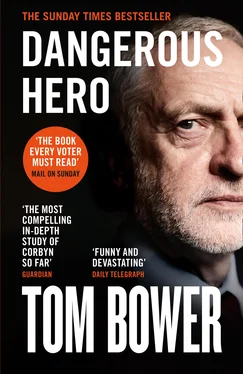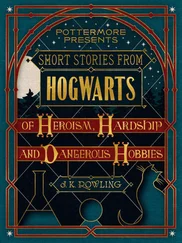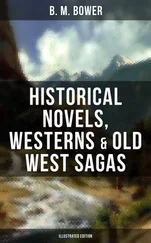On 13 May 1981, the Queen opened a new shopping centre in Haringey. Corbyn made sure he was absent – another move calculated to drive moderates out of his local party. The resulting tumult persuaded party headquarters to veto Ali’s membership application. Labour’s leaders, complained Corbyn, were ‘hell-bent on an unremitting war on the socialists in the party – they have no intention of disarming or taking power from the City’. In defiance, he accepted Ali’s second application to join the party, and persuaded Barbara Simon to issue him with a membership card. After all, he said, Ted Grant and Peter Taaffe, both members of the Trotskyite Militant Tendency, were members of the party in neighbouring Islington: the discrimination against Ali reflected outright political prejudice. This was not Corbyn the obedient class warrior on a treadmill – he had become engaged in a frontal war.
Immersed in ideological battles in Hornsey and Haringey, he was simultaneously engaged with violent strikers – his own council employees, who were hurling abuse at Haringey’s moderate councillors (such as remained). In the middle were the police – ‘a barrier to the people’s revolution’, as Corbyn saw them. Inside the town hall, he plotted with local trade union chiefs to challenge his party leaders with a new demand for a 43 per cent rates increase. ‘They object to rate rises,’ he said of his Labour opponents, ‘because they can’t get over them like they can fiddle corporation tax and their profits.’ The moderate Labour councillors retorted that he was pandering to the totalitarian left by ‘speaking out unashamedly in favour of terrorism’ and by leading the ‘anti-patriotic, anti-police faction’. From the Tory side, he was dubbed a ‘tinpot dictator’ for protecting what they dubbed ‘Jeremy’s Angels’ – Haringey’s corrupt council workers. The indictment was irrefutable: the district auditor had discovered that Haringey’s caretakers were submitting fraudulent overtime claims and the dustmen had stolen council property.
Corbyn’s response was to approve a triple pay bonus for dustmen. ‘While the Labour council remains in power,’ he said, ‘no trade unionist in its employ will want for anything.’ Equally, he ignored the consequences of his demand for rates increases, which had caused two major employers, Gestetner and Thorn Electrical, to move away from the borough. Corbyn did not comment. Instead, he tried again to topple Robin Young, but again failed to get a majority of the forty-two Labour councillors. In revenge, the moderates voted Corbyn off the planning committee. Characterised as a spendthrift, he even lost the vice chairmanship of the allotments committee. Undeterred, he continued to plot Young’s removal by deselecting more long-serving moderate councillors in favour of his own sympathisers. By early 1981, fourteen out of twenty-two new candidates in Haringey had been nominated by London Labour Briefing. Across the capital, at least twenty moderates had been deselected, and 130 Labour councillors had stepped down rather than face humiliation. Inevitably, Corbyn denied any part in orchestrating the purge. ‘We don’t draw up lists,’ he told the Hampstead & Highgate Express . Instead, he explained, the councillors selected were ‘politically experienced in community politics’ – ‘community’ being his euphemism for using the Labour Party to spread revolutionary socialism.
In March 1981 the skirmishes in Haringey, replicated across the country, finally provoked senior moderates within Labour to split. Exasperated by the activities of the far left, the anti-Marxists led by Roy Jenkins resigned from Labour and created the Social Democratic Party. Few believed the SDP had any chance of electoral success, but within months it had won both parliamentary seats and council elections. Corbyn and Benn blamed Michael Foot. Although the Tories criticised the Labour leader as a dangerous leftie, to Corbyn he was a paternalistic parliamentarian obsessed with ‘bureaucracy’ rather than mobilising the masses for revolution. Even worse, Foot ignored Benn’s protest against ‘the thought police’ in the party, and ordered the expulsion of Trotskyites, Marxists and other entryists. Among the first casualties were the editors of Liverpool’s Militant newspaper, although their expulsion did not undermine Derek Hatton and his fellow Trotskyists on the city council intent, like Corbyn, to challenge the government.
In April 1981, anti-police riots erupted in Brixton – home of the largest police station in the capital outside Scotland Yard – sparked by disaffected black youths living in deprived areas. The riots spread to Liverpool and Manchester. After a mob outside a police station yelled ‘Kill, kill,’ Corbyn condemned the ‘capitalist police’ and attacked the media’s reporting of the riots as ‘disgraceful’. He and John McDonnell welcomed the rise of revolutionary fervour against Thatcher, and were delighted when it spread to Northern Ireland. The world’s attention was focused on Bobby Sands, a twenty-six-year-old IRA member leading a hunger strike in the Maze prison outside Belfast. Naked and near death, Sands had just won a by-election to become a Member of Parliament. For Corbyn and the far left, his defiant martyrdom symbolised the resonance of their struggle. The next stage was to deliver the Target 82 coup in the GLC elections in May.
Ken Livingstone believed that all his work over the previous two years to replace moderate Labour candidates would win his faction a marginal majority within the Labour group in the GLC. But every vote was important. To his irritation Kate Hoey, the candidate in Hornsey, unexpectedly resigned to stand for Parliament. Livingstone renewed his appeal to Corbyn to stand, but he again declined, not least because of the way he was approached. ‘Politics is like biting lumps out of people,’ Livingstone had told him. Biting people was a practice Corbyn resisted – both verbal attacks and violence. He preferred others to do the dirty work. If he engaged in front-line warfare alongside Livingstone he would be exposed, not least to journalists who might begin investigating his past. That would interfere with his parliamentary ambitions and more. Instead he found a new candidate, David Hart, the son of Judith Hart, a left-wing Labour MP, who was duly voted in. Hart celebrated his victory with Livingstone, one of fifty Labour councillors against forty-one Tories. Within twenty-four hours Andrew McIntosh, the party’s moderate GLC leader, had fallen victim to the Target 82 plotters: just as planned, Livingstone marshalled a bare majority of the Labour councillors – many his hand-picked leftists – to usurp McIntosh and win election for himself as Labour’s leader. McIntosh, who six years earlier had been ousted as a councillor in Hornsey by Corbyn, had failed to learn his lesson. ‘He wasn’t a proper politician,’ scoffed Livingstone.
The new GLC leader had much in common with his loyal acolyte. Like Corbyn, he too was portrayed by the media as a ruthless revolutionary living for politics and happy to be separated from his wife. ‘Ken’s not interested in ordinary human relations,’ said one Labour councillor, ‘simply in getting to the top of the greasy pole.’ He wasted no time in putting his agenda into action: remaining moderate Labour members of the GLC were appalled by his imposition of higher rates to pay for cheap transport fares and, after Bobby Sands’ death had incited the IRA to burn a mother of three children to death, his instant declaration of support for the IRA. Corbyn, by contrast, cheered Livingstone’s audacity. Phase One was completed: the GLC was theirs. Thatcher was next.
Конец ознакомительного фрагмента.
Текст предоставлен ООО «ЛитРес».
Читать дальше










